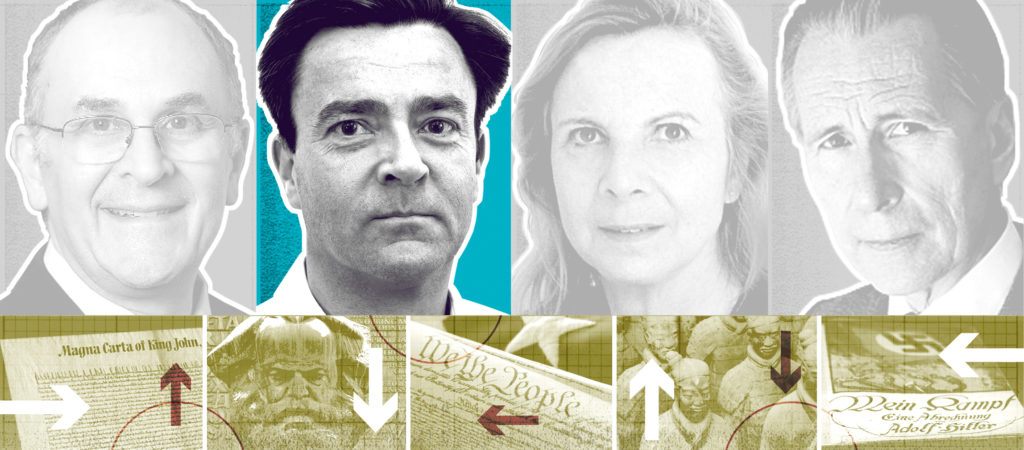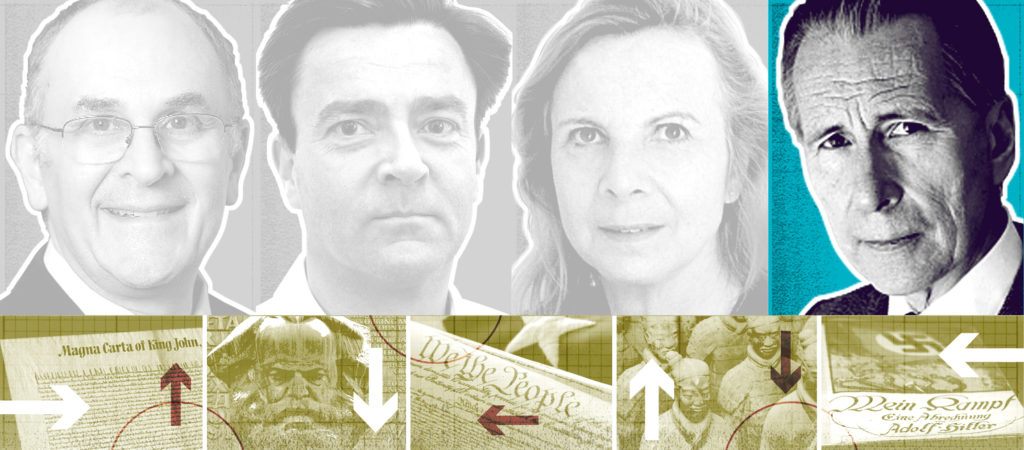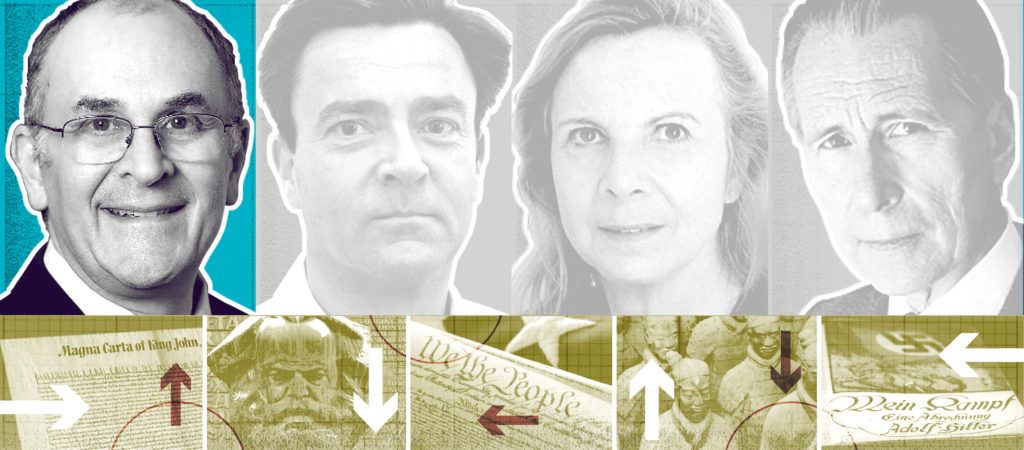Guardsmen on parade. Credit: Getty
Earlier this week, the History Jury turned their minds to dangerous misperceptions of the past.
Today, the question is: what lessons from history are we ignoring?

Victoria Schofield: Protectionist policies can lead to hardship rather than prosperity.
The lesson in history is the Smoot-Hawley Tariff enacted by the US administration of Herbert Hoover in 1930 and which intensified nationalism in the years leading up to the outbreak of the Second World War. Initially framed to protect American farmers, its enactment – against the advice of over 1,000 economists – had the reverse effect. Although not directly responsible either for the Great Depression or the outbreak of war, its passage contributed to a substantial decline in global trade which provided those who were willing to attempt to alter the politico-economic status quo ante, notably Germany and Japan, with a reason for doing so.
We may like to think that we have learnt from the consequences of Smoot-Hawley with the introduction of the World Trade Organisation and a general commitment to open trade. But with nationalism on the rise and the slogan of America First emanating out of the United States, the mood can again change; President Trump’s new protectionist initiatives have already sounded an alarm bell, as witnessed by the over 1,000 economists who have now written to him. For us in Britain, as politicians argue about the exact nature of our trade and investment policy as a ‘third country’ outside the EU, we should remember that tariffs and quotas aimed to appease some political interests serve to make the world poorer.

Paul Lay: Military investment goes hand-in-hand with technological innovation
Peace dividends are superficially attractive. Which government would not wish to lavish greater sums of money rewarding its supporters and bribing its opponents?
When the Cold War came to an end – along with, as some suggested, history itself – and before the eye-opening atrocities of 9/11, when Monica Lewinsky was the biggest thing in the news cycle, humanity appeared to be on course for verdant, postbellum uplands. But, as the historian David Edgerton suggested in his 2005 study Warfare State: Britain 1920-1970 and reiterates in his latest magisterial work, The Rise and Fall of the British Nation, technological innovation and a well-funded fiscal-military state go hand in hand.
Part of the return, in addition to enhanced security, is prosperity. It is no surprise that the two most technologically innovative and advanced countries on Earth – the US and Israel – should also be ones who spend serious money on the military, the source of such transformational technologies as the internet. And China is advancing on that front, too, aided by an expanding, scientifically literate workforce. The parlous state of British investment in its armed forces and the apparatus that surrounds it is a far greater challenge to our future prosperity and security than Brexit.
Britain has been a major military and intelligence player for centuries. It should not stop being one when, all around us, we see growing uncertainty, fragmentation and instability. The era of the fiscal-military state is not over yet.









Join the discussion
Join like minded readers that support our journalism by becoming a paid subscriber
To join the discussion in the comments, become a paid subscriber.
Join like minded readers that support our journalism, read unlimited articles and enjoy other subscriber-only benefits.
Subscribe